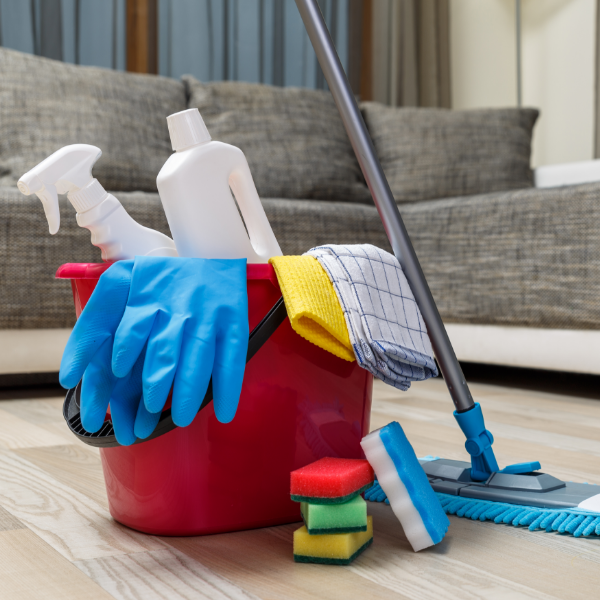Best Ways to Prevent the Spread of Germs in Your House
Germs are everywhere, which makes the risk of coming into contact with them relatively high. While many germs are harmless to us, such as the ones in our gut, several others are responsible for various diseases such as typhoid, food poisoning, diarrhea, skin infections, etc.
The primary problem with germs is that they are everywhere, including air, water, ground, and every surface. Even if you deeply understand the importance of cleaning frequency around the house or adopt hygienic practices or habits for your home, completely stopping the spread of germs is impossible.
However, there are still some ways to guarantee to slow down or halt the germs from spreading within your house.
1. Start with the Laundry
Do you think your washing machine is the cleanest place in your house? You couldn’t be further away from the truth. Dirty laundry can fill your washer and contaminate your future laundry with germs and bacteria.
To avoid this, wash and dry your laundry at 60 degrees Celsius or above, and use Dettol laundry disinfection products such as antibacterial laundry sanitizer and washing machine cleaner.
2. Washing Hands
Hands are the most used body part, which is why they are one of the most common ways to collect germs from all the surfaces they touch.
Therefore, to ensure that you do not bring those germs and bacteria back into your house, wash your hands every time with warm water, bar soap, or antibacterial liquid hand wash for at least 20 seconds after returning home.
In addition, it is needless to say that you need to properly wash your hands after using the restroom, cooking, cleaning the kitchen, or handling potentially germ-laden items like raw chicken.
3. Eradicating Bedroom Germs
A person sleeps 6-8 hours per day on average. That is why washing all bed lines at least once a week in hot water (60 degrees Celsius or above) is essential. Also, if the individual is sick, wash bed linens more frequently.
Also, keep food and snacks away from the bedroom. Food crumbs are the most common methods of attracting germs, bacteria, and mold.
4. Sanitize Your Living Room
According to Germs 101, they hang out where you do. Therefore, frequently touched surfaces such as phones, tables, remote controls, chairs, doors, mirrors, walls, cabinets, etc., are prime carriers of germs.
Clean and disinfect surfaces regularly using Dettol’s multisurface disinfectant products like surface spray, cleaner, and antiseptic liquid. In addition, vacuum crumbs and clean spills prevent bacteria and germs from growing under carpets and furniture.
For more information on proper cleaning and sanitizing your living room, read our in-depth article on how to clean your living room.
5. Sanitize Your Bathroom & Kitchen
The bathroom and kitchen, especially the sink, are the germiest places in the house. To minimize the risk of spreading germs throughout the bathroom, kitchen, and home, thoroughly clean and disinfect the toilet, kitchen sink, appliances, and other surfaces.
Clean your toilet and kitchen at least once a day. Use Dettol kitchen disinfectant spray, bathroom power trigger spray, or bleach to sanitize the surfaces, drain and garbage disposal, or use white vinegar and baking soda as a natural disinfectant.
6. Outdoor Shoes
If you allow outdoor shoes to be worn inside your house, it's time to rethink this policy. When outside, shoes can pick up nasty germs and bring the germs to your home.
Leave your shoes at the doorway to avoid bringing germs into your house. As an added benefit, you'll also reduce the dust and dirt trailed into your home.
7. Avoid Contact with Sick People
Being near a person suffering some type of illness widely spreads germs. Therefore, if you care for a sick individual, ensure to adopt all the essential healthcare precautions such as wearing a mask, washing your hands frequently, maintaining social distancing, etc.
If you are sick, avoid going outside or being too crowded. Self-quarantine or isolate yourself in a separate room unless the illness goes away.
